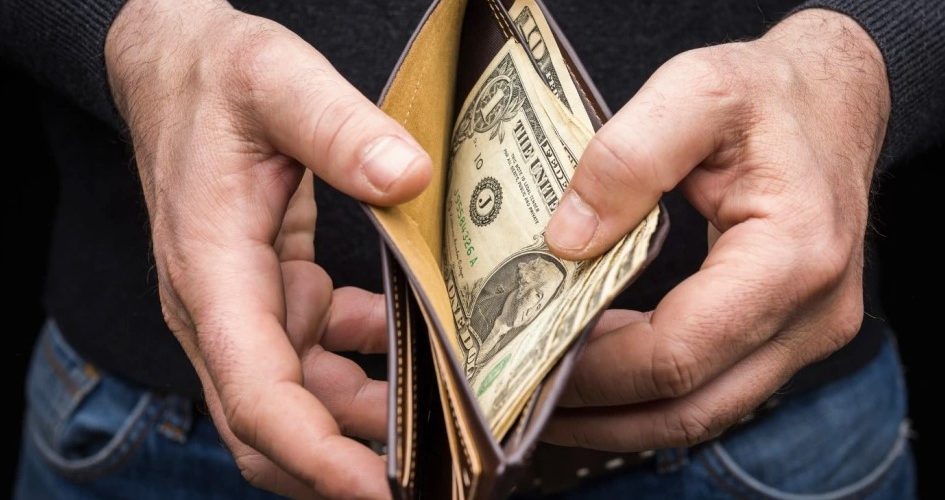If the federal government were to default on its debt it “would be catastrophic for the U.S. economy,” and that “it is impossible to overstate the negative consequences that would occur,” U.S. Chamber of Commerce Executive Vice President and Chief Policy Officer Neil Bradley said Tuesday.
Negotiations between President Joe Biden and House Speaker Kevin McCarthy continue, which McCarthy has described as “productive,” yet also emphasizing that House Republicans are “nowhere near a deal.”
Bradley says negotiations need to quickly come to a resolution, with Treasury Sec. Janet Yellen saying in a letter sent Monday to Biden and McCarthy that June 1 is the deadline to avoid default.
“I am writing to note that we estimate that it is highly likely that Treasury will no longer be able to satisfy all of the government’s obligations if Congress has not acted to raise or suspend the debt limit by early June, and potentially as early as June 1,” Yellen wrote.
Yellen’s June 1 deadline has been disputed by several House Republicans, most prominently House Majority Leader Steve Scalise. Other estimates point to dates in early June, with Goldman Sachs projecting defaults starting on June 8 and Wells Fargo analysts suggesting June 15.
Bradley says the fallout of a default would not only affect the U.S. economy, but the entire globe’s.
“The U.S. economy and global financial system are all underpinned by the idea that the U.S. government – unlike others around the world – always pays its bills. Investments in U.S. debt are considered ‘risk-free’, which means the federal government pays less to borrow money,” he said. The U.S.’ competitiveness would be greatly diminished. “The role of the dollar globally would be weakened, perhaps permanently. Most analysts believe this would result in an immediate recession with long-term negative effects.”
As the president and speaker negotiate, party leaders are sniping over who’s to blame for the impasse.
House Minority Leader Hakeem Jeffries said of House Republicans’ rejection of a White House proposed plan to extend the debt limit, “They’ve rejected the fact that President Biden is willing to consider freezing spending. It will reduce the deficit by a trillion dollars. This is what the extreme MAGA Republicans say that they want. They rejected. They rejected an unwillingness to not put the country through this again.”
Meanwhile, on the other side of the aisle, Republican Rep. Garret Graves, a lead House Republican negotiator, said, “Until this administration is willing to recognize that they are having record spending, record deficits and record taxes, then we’re not going to be able to come together.”
Arizona Rep. David Schweikert, a member of the powerful Ways and Means Committee, said in a speech on the House floor last week that there are lessons to be learned from the last near-miss on the debt ceiling in 2011 and that the U.S. should anticipate a negative effect on its credit rating.
“In 2011, U.S. sovereign debt got a one-tick downgrade. Standard and Poor’s came in and said, ‘Nope, you guys are AA+’,” Schweikert said. “This is Standard & Poor’s report from 2011. They downgraded United States debt because we did not take our debt seriously. We did not take it seriously how we were going to manage it into the future. Here we are, a decade-plus later, things are dramatically worse.”
The S&P downgrade in 2011 cited “political brinksmanship” as evidence that U.S. policymaking was becoming less stable, injecting greater uncertainty into the U.S. economy, a topic Arizona Chamber of Commerce & Industry President and CEO Danny Seiden said worries him and his members from the state’s business community.
“The debate over whether to raise the debt ceiling is an example of a public policy threat to the business environment,” Seiden wrote in an April column. “Instead of worrying whether a new product will boost sales or whether financing can be secured to expand a plant, businesses are left wondering whether Congress will take the steps necessary to ensure the nation can continue to pay its bills or whether it will unleash chaos on domestic and international markets.”
Markets are taking notice. The Dow on Tuesday fell 230 points, and the S&P 500 and Nasdaq also fell.
















Add comment